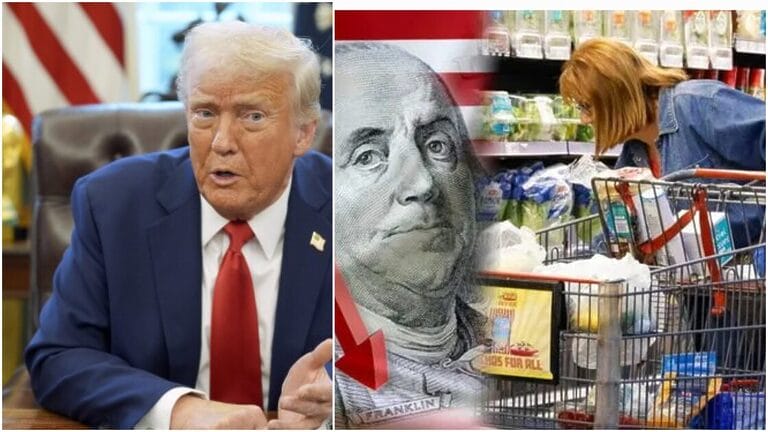The President of the United States, Donald Trump, admitted that its trade policy could have negative consequences for the country's economy this very year.
Although he avoided providing specific details, Trump acknowledged that a recession could occur due to the tariffs announced against products from Canada and Mexico.
Economic uncertainty increased after Trump announced the possible increase of these tariffs starting from April 2.
The decision caused alarm among entrepreneurs and analysts, who warned of the risk of an economic crisis caused by the rising cost of key imports.
The impact of tariffs on the economy
The financial markets reacted negatively to Trump's statements. On Monday's opening, the Dow Jones index fell 370 points.
The S&P 500 and the Nasdaq also decreased significantly amid the growing uncertainty caused by the leader's economic policies.
Experts warn that the implementation of these tariffs would cause inflation, a concern that already affects millions of American consumers.
According to the Department of Labor, in January the year-over-year inflation reached 3, driven by a rebound in basic goods prices.
Additionally, consumer spending unexpectedly fell by 0.2% in January, the largest monthly contraction since February 2021. Companies like Walmart and Target noted that the economic uncertainty caused by Trump's trade policy has led Americans to significantly reduce their purchases.
Employment risk and immigration restrictions
The labor market also feels the impact of the president's policies. In February, American companies announced the highest number of layoffs since the pandemic, with a particular impact on federal workers. According to official data, there were 10,000 fewer workers in the federal sector in February compared to January.
Experts like Gus Faucher, chief economist at PNC, pointed out that the immigration restrictions pushed by Trump negatively impact essential industries such as agriculture, construction, and healthcare. The labor shortage could slow down job recovery in key sectors over the coming years.
Inevitable recession or temporary adjustment?
Although Trump assured that the imposition of tariffs would only cause "a small disruption," he did not rule out that his policies could lead to a recession in the United States. In an interview with Fox News Sunday, he stated that he prefers not to make specific predictions but admitted that his decisions could be painful for some economic sectors initially.
Trump's warnings align with concerning projections from the Federal Reserve. A recent report forecasted a possible 3% contraction in Gross Domestic Product (GDP) in the first quarter of 2025, which would be the first decline in U.S. GDP since 2022.
Are there reasons for optimism?
Despite these negative signals, the US economy still has strengths. According to Jerome Powell, Federal Reserve Chairman, although uncertainty has increased, consumption could remain stable thanks to the country's economic diversity.
Companies also expect that other measures promised by Trump, such as deregulation and tax cuts, may partially mitigate the impact of tariffs and cuts in public spending.
However, the climate of uncertainty caused by trade policy, federal job cuts, and immigration restrictions continues to affect the confidence of American businesses and consumers.
Continue reading in Directory News
Follow our channels of WhatsApp, Telegram y Facebook.
